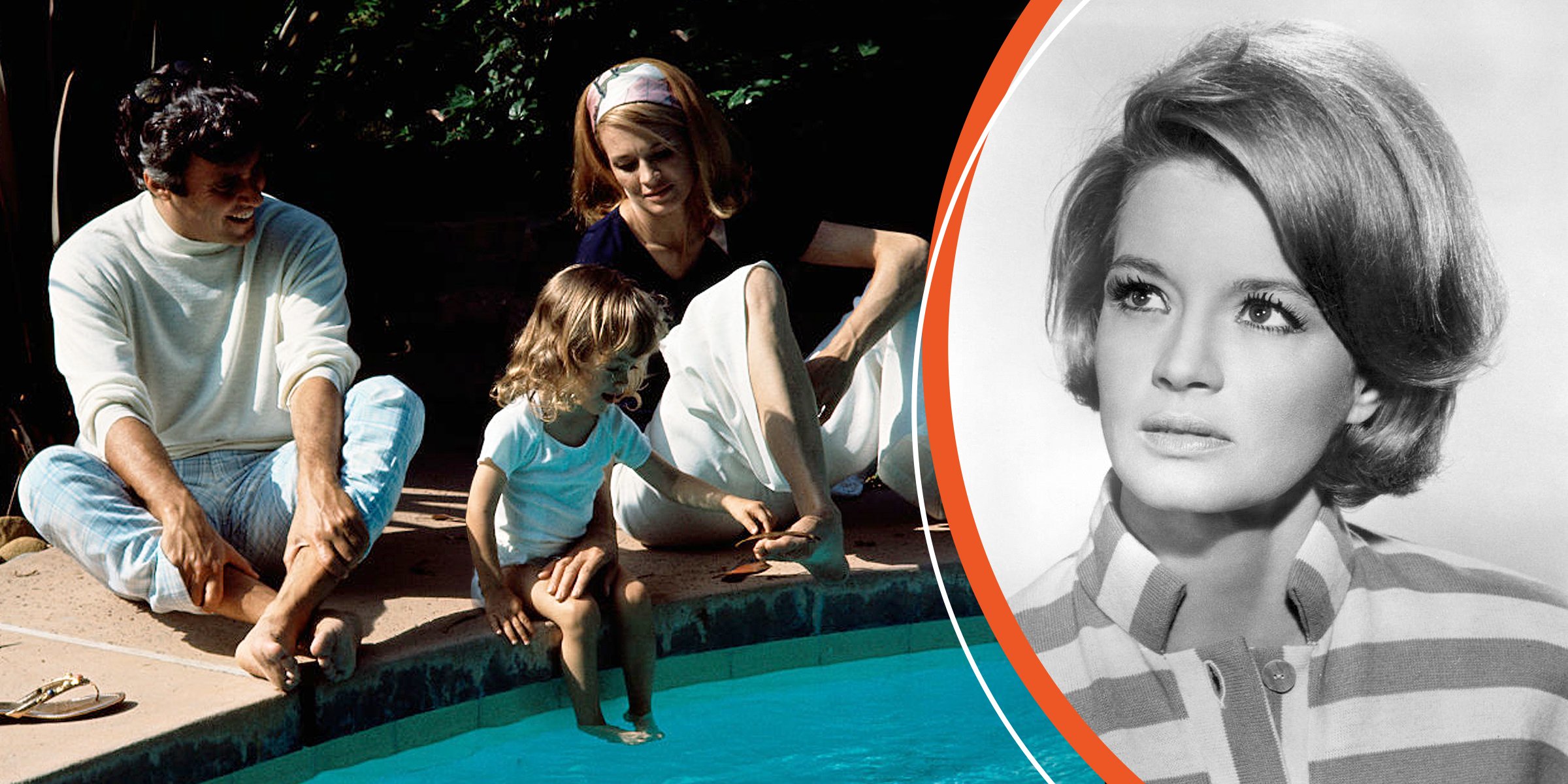
Burt Bacharach Felt Daughter Never Forgave Him for Separating Her & Mom Angie Dickinson — He Refused to Read Her Death Note
Burt Bacharach thought sending his daughter to a psychiatric clinic would help her overcome the difficulties she faced. But after spending ten years at the institution, Nikki did not get better, and she resented her father till her death.
When Burt Bacharach and Angie Dickinson's daughter Nikki was born three months premature, most people thought she would not make it, but she did. As she grew, the child suffered from various health issues and personality disorders. The couple tried everything they could, but it proved futile.
Nikki eventually committed suicide, and years after her death, Burt explained he regretted some of his decisions and how they handled Nikki.
![[Left] Burt Bacharach, wife Angie Dickinson, and daughter Lea Nikki, 2, on the grounds and around the swimming pool of their Hollywood home June 3, 1969; [Right] Studio headshot portrait of American actor Angie Dickinson wearing a striped knit shirt and looking upwards. | Source: Getty Images](https://cdn.amomama.com/d8955bd0b68e85d6611619c784082cd3.jpg)
[Left] Burt Bacharach, wife Angie Dickinson, and daughter Lea Nikki, 2, on the grounds and around the swimming pool of their Hollywood home June 3, 1969; [Right] Studio headshot portrait of American actor Angie Dickinson wearing a striped knit shirt and looking upwards. | Source: Getty Images
BACHARACH AND DICKINSON'S UNHAPPY MARRIAGE
Burt's first marriage was to singer Paula Stewart in 1953 after they met when he began working as her accompanist. Before the couple got married, Paula's mother warned her that Burt was not marriage material, and she was proved right as they divorced three years later, in 1958.
Burt's second attempt at marriage came multiple years later after he met Actress Angie Dickinson in 1965 in New York. She agreed to follow him to London, where the songwriter was billed to compose the music for the film "What's New Pussycat?"
About two months later, they exchanged marital vows, and for the first ten years of their marriage, everything went well. They were even known as Hollywood's golden couple.
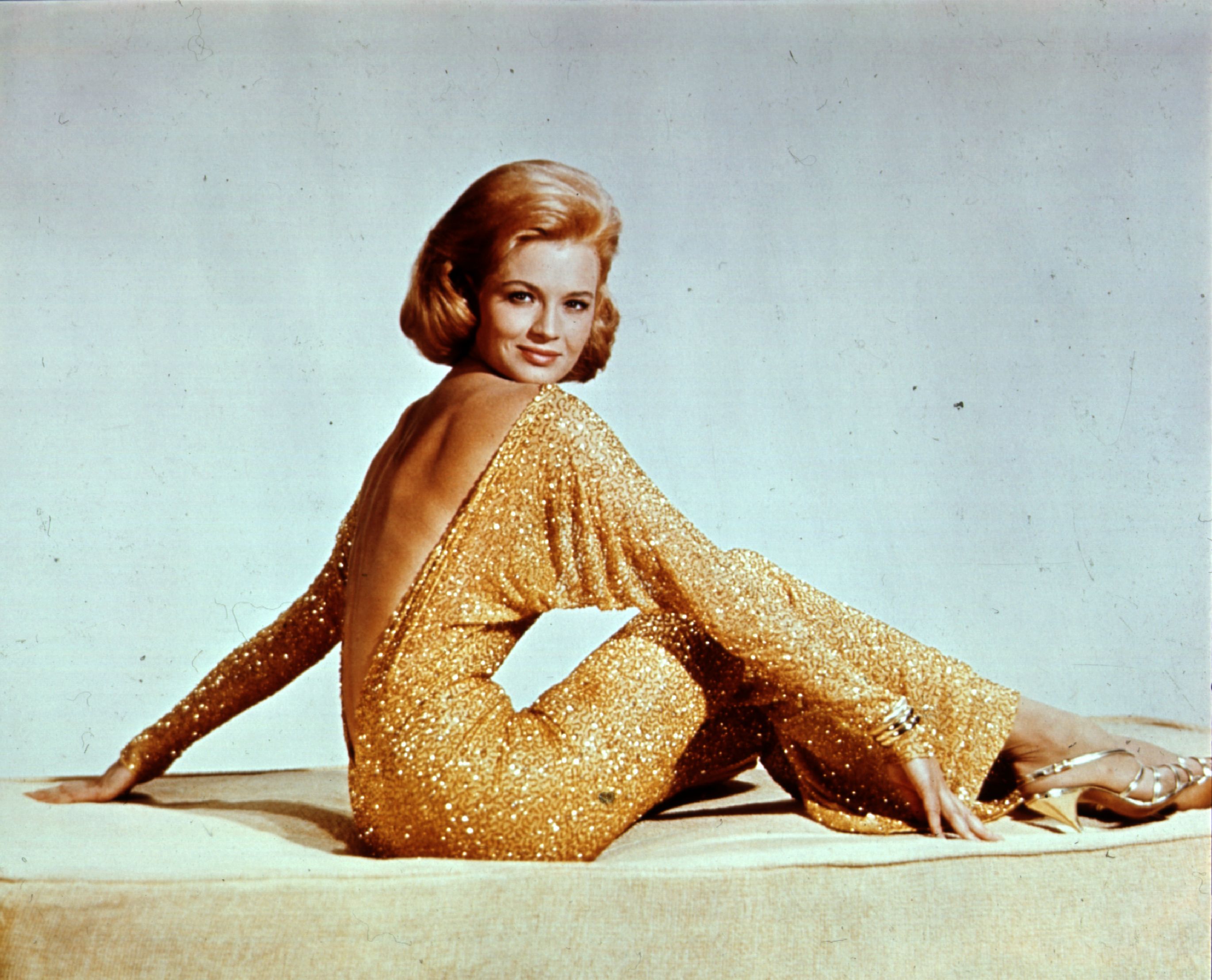
Angie Dickinson wearing a backless gold lame evening dress with batwing sleeves, circa 1965. | Source: Getty Images
However, the strength of their marriage started diminishing when Angie read about her husband having an affair in the newspaper.
Even though he denied it, the actress knew it was true. She did not leave him at the time because she tried not to think about his infidelity. Years later, Angie fessed up that Burt never loved her. She said:
"He never loved me, and I can tell you that right now."
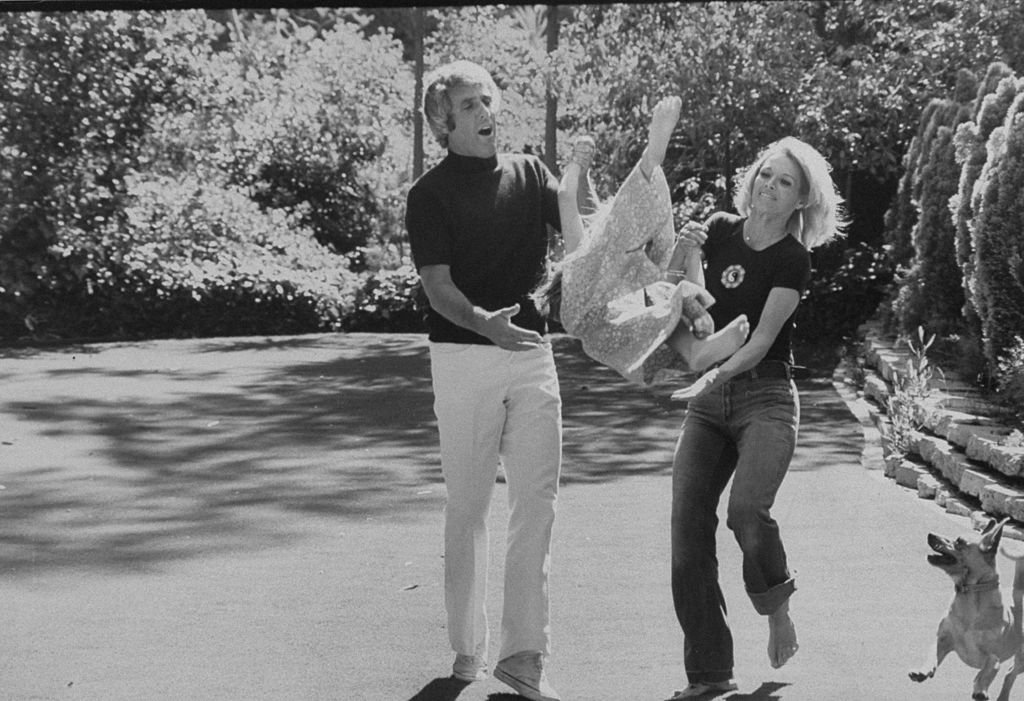
Composer Burt Bacharach Jr. (L) and his actress wife Angie Dickinson playing with their daughter, in Beverly Hills in 1974. | Source: Getty Images
However, the actress liked her husband a lot and tried to stay in the marriage, but it all came crashing down when they divorced in 1976. Afterward, Angie explained that the ending period of their marriage was very tough and sad. The actress proclaimed:
"He should never have been married."
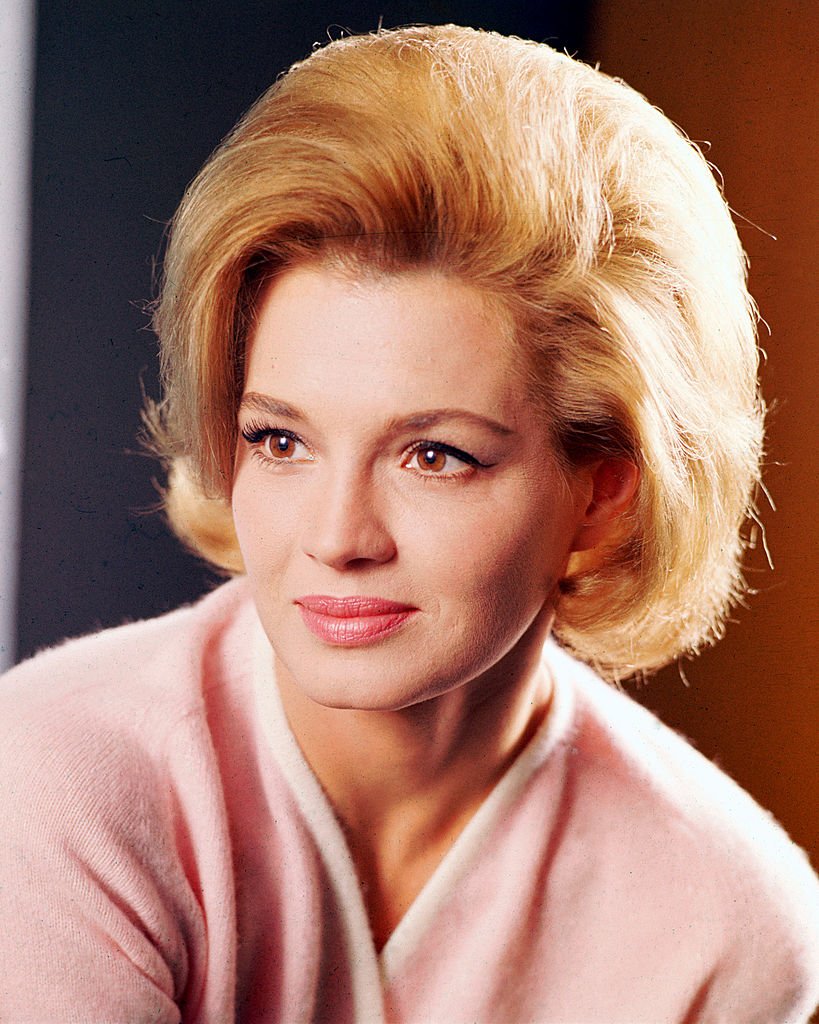
Headshot of Angie Dickinson, US actress, circa 1965. | Source: Getty Images
THEIR DAUGHTER'S HEALTH STRUGGLES
Burt and Angie became parents for the first time in 1966 when their daughter Nikki was born three months premature.
Angie was in labor for 26 hours after her water broke early, and when she finally gave birth to her baby, who weighed one pound and ten ounces, nobody thought the baby would survive, but the child did.
From her early childhood, Nikki suffered serious health problems. Just before she was one year old, the kid started having issues with her eyesight and was later diagnosed with strabismus, which meant she could use only one eye at a time.
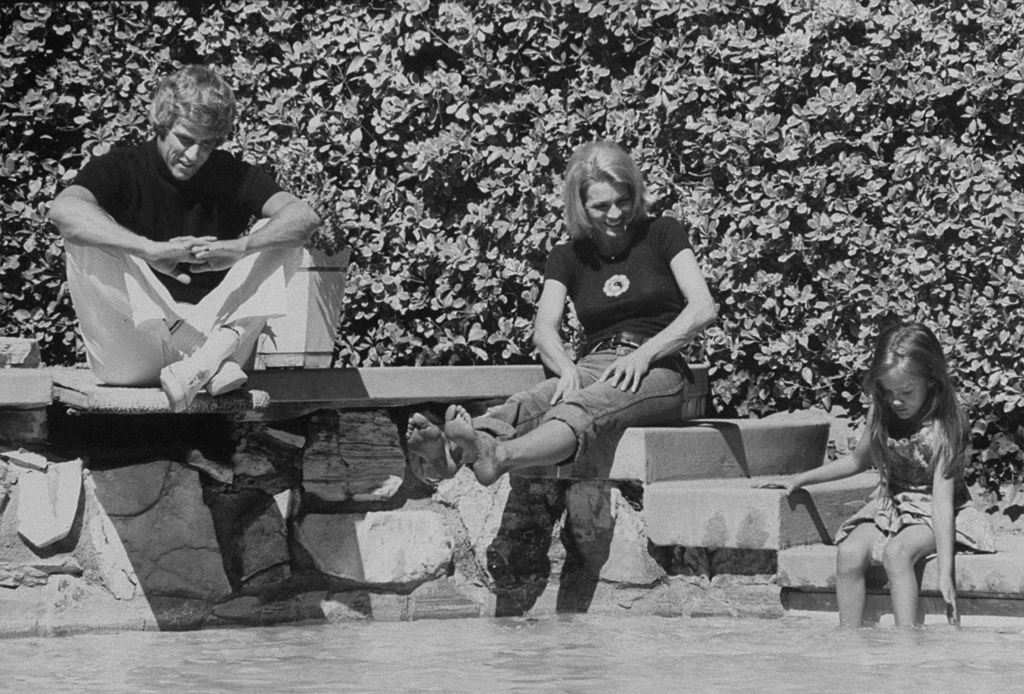
Composer Burt Bacharach Jr. (L) and his actress wife Angie Dickinson watching their daughter play in the water in Hollywood in 1974. | Source: Getty Images
Nikki also displayed symptoms of Asperger's Syndrome, but at that time, the disorder was not fully known in the medical world.
As she grew, she exhibited compulsive and obsessive behavior. In addition, she was socially withdrawn and could not interact with other people.
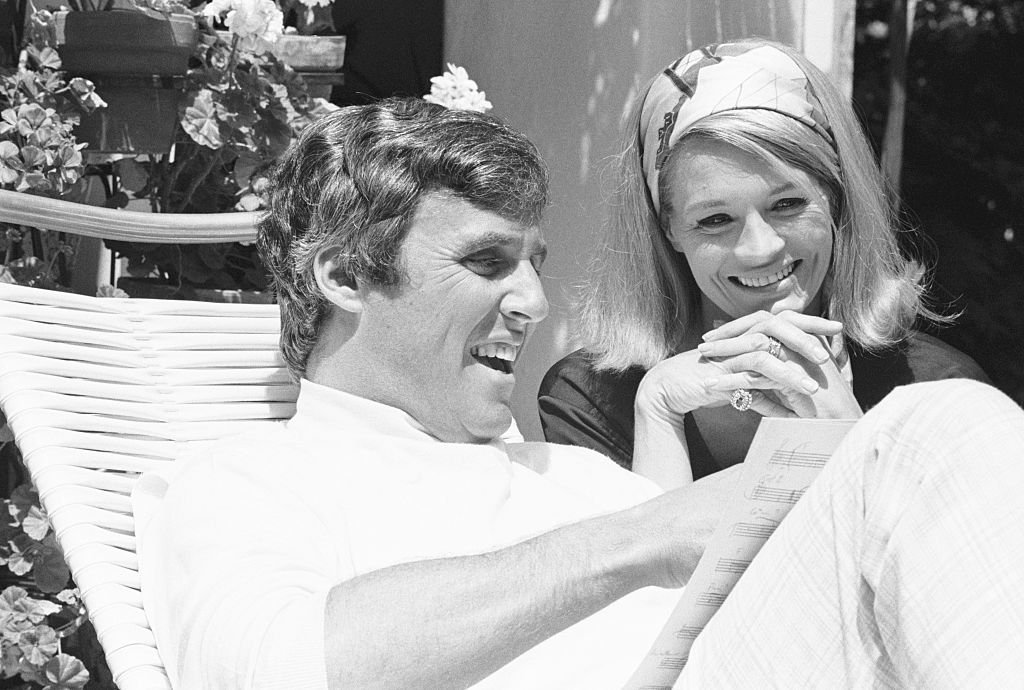
Composer Burt Bacharach and wife, actress Angie Dickinson, review some of Burt's new songs on the patio of their home. Los Angeles, California, in 1960. | Source: Getty Images
The little kid also got frustrated and angry easily, but despite all her health struggles, Angie loved her daughter. The actress declared that:
"She (Nikki) was a wonderful, wonderful gift."
At 16, Burt had her admitted to a psychiatric clinic called the Constance Bultman Wilson Center in Faribault, Minnesota. He felt putting distance between Nikki and her mother might help the child.
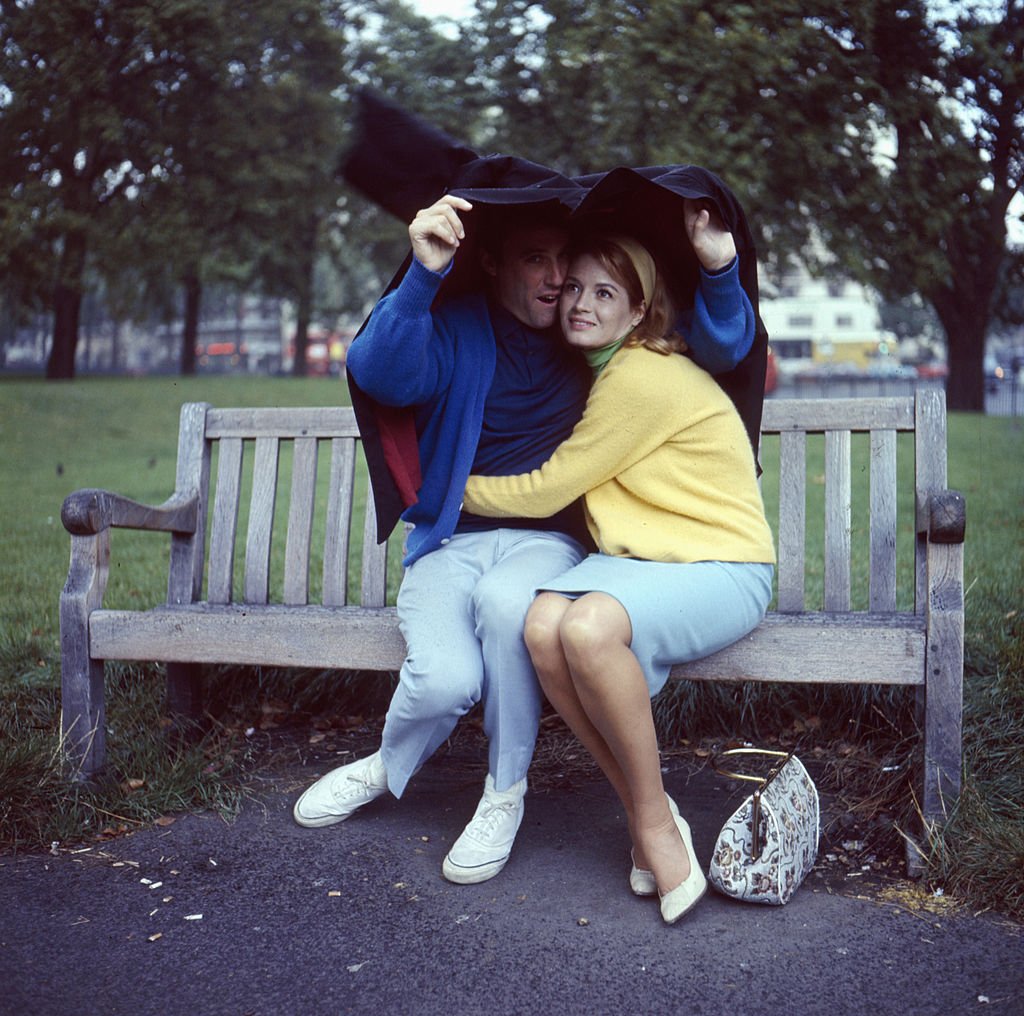
Burt Bacharach and his wife Angie Dickinson in a London park in 1966 | Source: Getty Images
NIKKI'S STRUGGLES CONTINUE INTO ADULTHOOD
Nikki stayed at the Center for ten years but did not get better. Angie made regular calls to the institution to speak with her daughter throughout her stay. The actress was also permitted to take Nikki on trips, and the pair visited places like the Canadian Rockies, the Yucatán, and the Tetons.
Her interest in piano started at a very young age, and she played like a prodigy. Nikki was also studying piano at the institute but had to stop when seeing the keys became an issue due to her poor eyesight.
She gravitated towards drums and started taking lessons. Nikki thrived as a drummer and could keep up with her mates. Her father even allowed her to be the drummer for his song "Heartlight" at one of his concerts for a charity in Minneapolis.
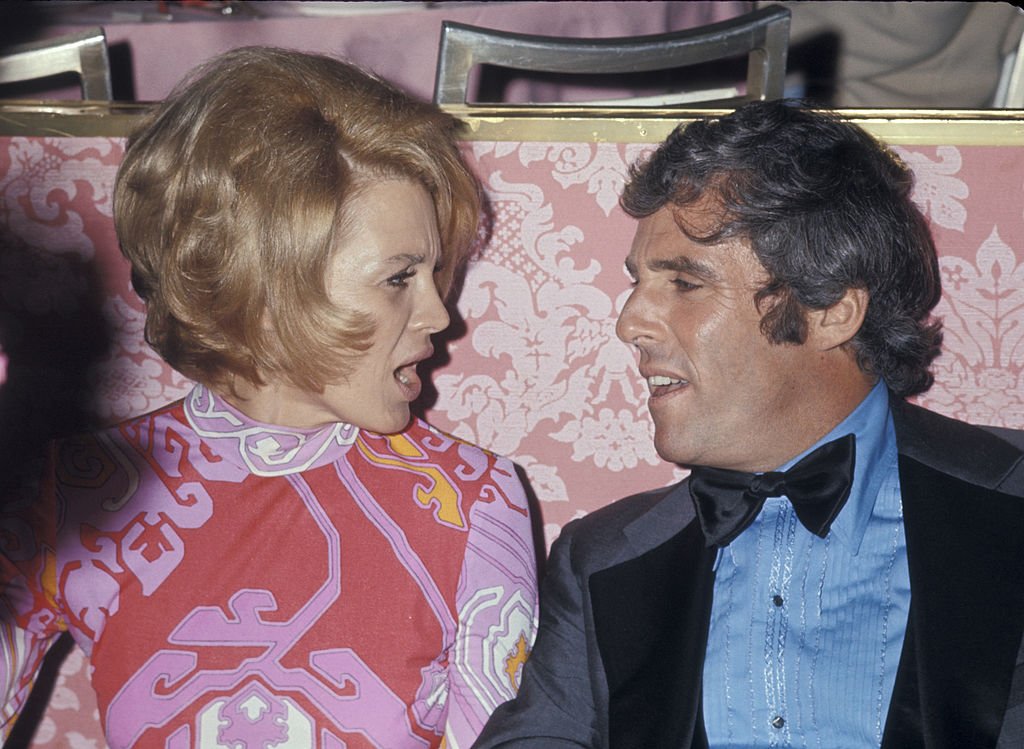
Angie Dickinson and Burt Bacharach in Beverly Hills, California in April 1971 | Source: Getty Images
Nikki wanted to be a geologist, so when she was about to leave the Constance Bultman Wilson Center in 1992, her mother got her enrolled at Cal Lutheran in Thousand Oaks, an hour northwest of Los Angeles.
Her parents also got her an apartment near the university, with a fantastic karate studio nearby. Nikki began karate lessons and was so good she earned her green belt.
Nicki was also fascinated by earthquakes, and that was why she wanted to study geology. She loved feeling the power of earthquakes and wished they happened more often but without all the damage.
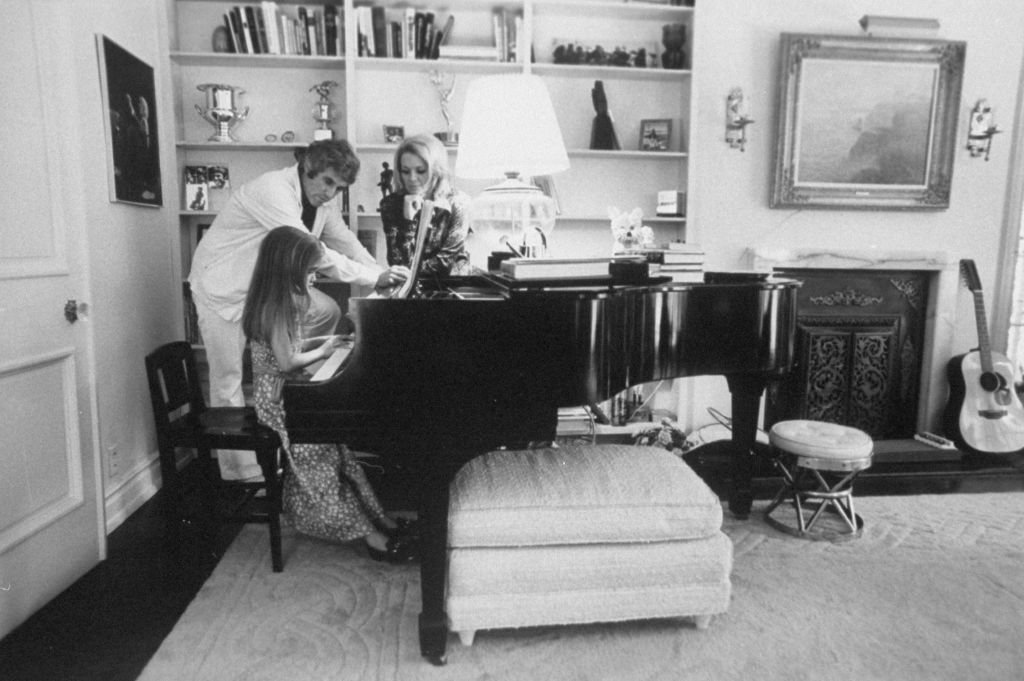
Composer Burt Bacharach Jr. (L) and his actress wife Angie Dickinson watching their daughter play the piano. | Source: Getty Images
HER DIAGNOSIS AND DEATH
Angie heard about Asperger's syndrome for the first time when the actress's sister sent her an article written on the disorder.
It was advised that sending people suffering from the disorder to an institution would be counterproductive. Still, it was already too late because Nikki had already spent ten years at one.
Nikki was 27 years old when Angie took her to UCLA, and after examining her, the doctor announced she had been suffering from the syndrome. However, knowing her diagnosis was not helpful to Nikki, and she could not cope.
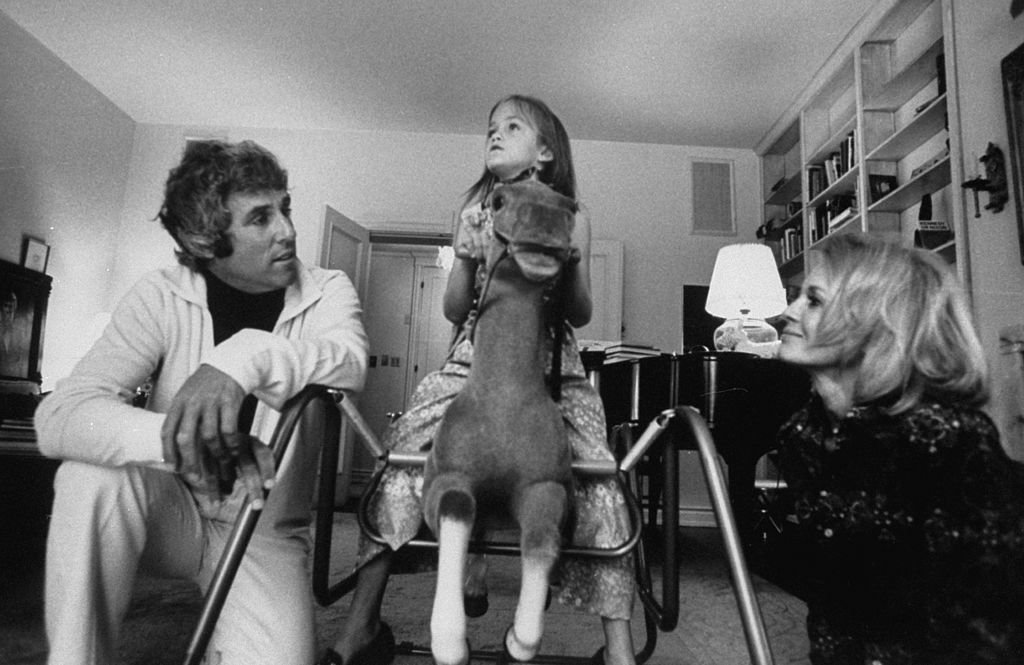
Composer Burt Bacharach Jr. (L) and his actress wife Angie Dickinson watching their daughter ride a rocking horse. | Source: Getty Images
Sadly in 2007, aged 40, Nikki committed suicide in her apartment, where she died of suffocation using a plastic bag and helium.
Afterward, the family released a statement that stated that the 40 years old quietly and peacefully committed suicide to escape the ravages to her brain brought on by Asperger's.
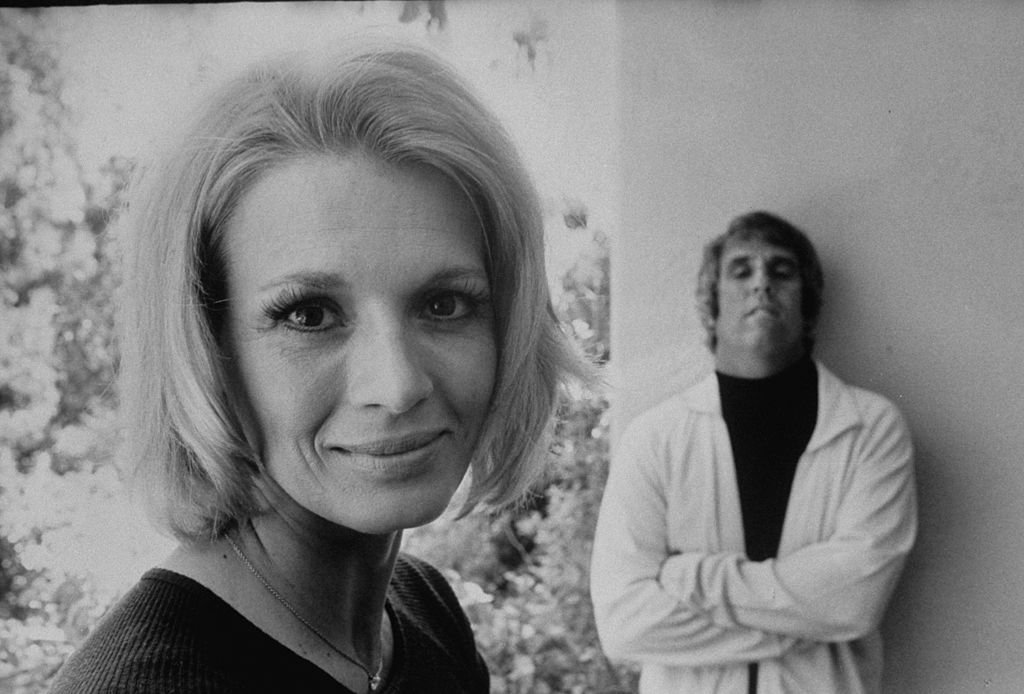
Burt Bacharach and his wife Angie Dickinson in May 1974 | Photo: Getty Images Burt Bacharach and his wife Angie Dickinson in May 1974 | Source: Getty Images
BURT'S REFLECTIONS
Burt Bacharach released his autobiography, "Anyone Who Had a Heart: My Life and music (Harper)." He knew he would have to relive the events that led to his daughter's death.
The Veteran songwriter explained that he never thought Nikki would kill herself even though the signs were there. He felt her strong relationship with Angie would have prevented her from going to such fatal extremes, but it did not.
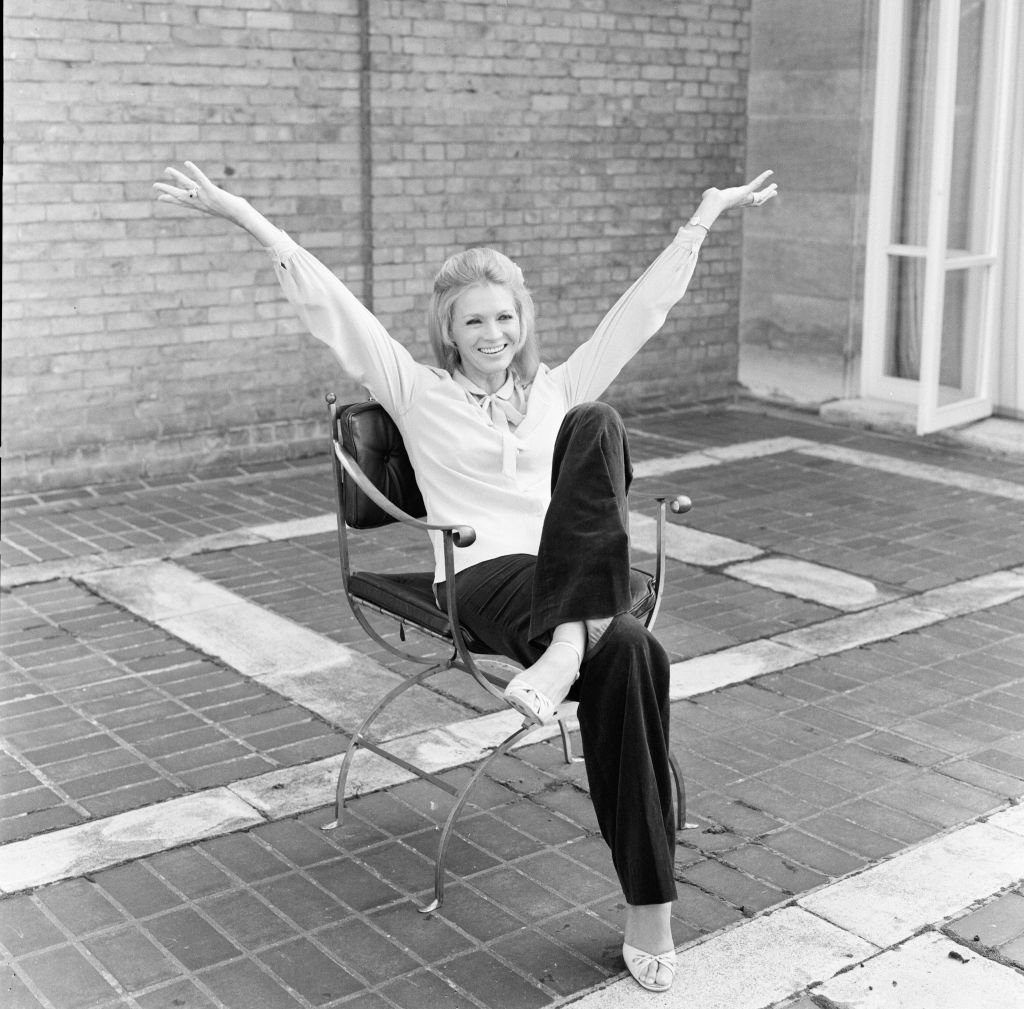
Angie Dickinson in Knightsbridge, London, on September 26, 1980 | Source: Getty Images
Burt explained that they did everything they could to improve her, including sending her to the Constance Bultman Wilson Center for ten years, a decision he regretted.
He explained that there was always resentment from Nikki that he imprisoned her, which was not what he intended, but at the time, Nikki was not properly diagnosed. Burt admitted:
"I wish somebody would have just said; you're not going to heal her, let her be."
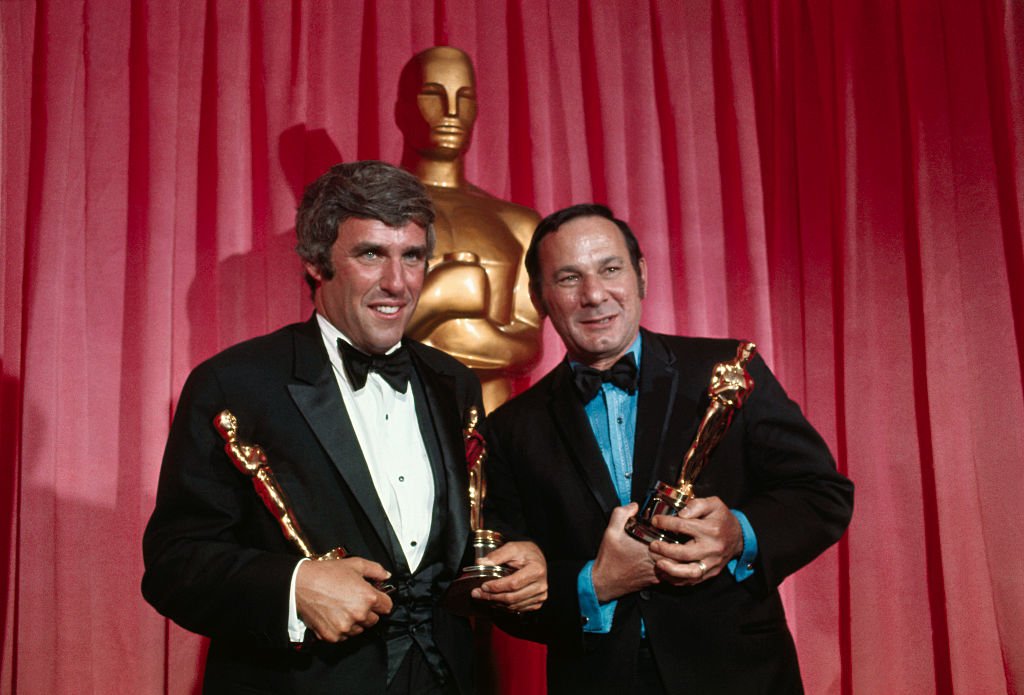
For "Best Song in a Movie" for 1969, composer Burt Bacharach (left) and lyricist Hal David hold Oscars they won for "Raindrops Keep Falling on my Head" from "Butch Cassidy and the Sundance Kid," at the Academy Awards. | Source: Getty Images
After Nikki's suicide, he discovered that she had left him a note, but Burt declared he would never read the note. He confessed:
"There is no need to read it. I already know what she said."
He also explained he hated how Nikki died because she died alone but taking her life the way she did takes a lot of courage for someone who had suffered so much.
